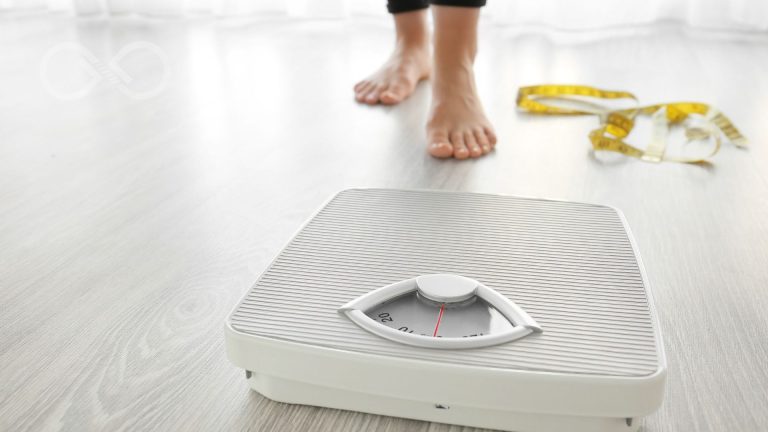Menopause brings many changes, and for many women, weight management becomes more challenging. Hormonal shifts can slow down metabolism, reduce muscle mass, and increase fat storage, particularly around the abdomen. However, with the right strategies, you can lose weight and improve your overall health during this phase of life. Let’s explore the key areas to focus on, with a special emphasis on diet.
Understanding Menopause and Weight Gain
During menopause, estrogen levels decline, which can:
- Slow metabolism.
- Increase fat accumulation, especially in the abdominal area.
- Affect muscle mass, leading to a lower resting metabolic rate.
Additionally, stress and poor sleep—common during menopause—can exacerbate weight gain by raising cortisol levels and increasing cravings for high-calorie foods.
Effective Strategies for Menopause Weight Loss
1. Optimize Your Diet
What you eat plays a critical role in managing weight and overall health during menopause. Here’s how to adjust your diet:
- Prioritize Protein:
- Protein helps preserve muscle mass, boosts metabolism, and keeps you fuller for longer.
- Examples: Lean chicken, turkey, eggs, fish, tofu, Greek yogurt, lentils, and beans.
- Increase Fiber Intake:
- Fiber aids digestion, promotes satiety, and helps control blood sugar levels.
- Examples: Vegetables (broccoli, spinach, carrots), fruits (berries, apples, pears), whole grains (quinoa, oats, brown rice), and legumes (chickpeas, black beans).
- Incorporate Healthy Fats:
- Healthy fats support hormone balance and reduce inflammation.
- Examples: Avocados, nuts, seeds, olive oil, and fatty fish like salmon.
- Limit Refined Carbs and Sugars:
- Reduce your intake of white bread, pasta, pastries, and sugary drinks to prevent blood sugar spikes and fat storage.
- Embrace Smaller, Balanced Meals:
- Eating smaller meals throughout the day can stabilize blood sugar and prevent overeating.
- Stay Hydrated:
- Drinking water is essential for metabolism and can help reduce bloating.
- Aim for 8–10 cups daily and consider adding herbal teas to reduce caffeine.
- Consider Phytoestrogens:
- Foods like soy, flaxseeds, and chickpeas may help balance hormones naturally.
Sample Daily Menu
Breakfast:
- Overnight oats with almond milk, chia seeds, a handful of berries, and a dollop of Greek yogurt.
Snack:
- A handful of mixed nuts and an apple.
Lunch:
- Grilled salmon salad with mixed greens, avocado, cherry tomatoes, and olive oil-lemon dressing.
Snack:
- Veggie sticks (carrots, celery, cucumbers) with hummus.
Dinner:
- Grilled chicken breast, roasted sweet potatoes, and steamed broccoli.
Dessert:
- Dark chocolate (70% or higher) and a small handful of walnuts.
2. Incorporate Strength Training
Menopause-related muscle loss can lower your metabolism. Combat this by:
- Lifting weights or using resistance bands 2–3 times a week.
- Focusing on compound movements like squats, deadlifts, and push-ups.
- Including unilateral exercises (e.g., single-leg lunges) for balance and strength.
3. Add Cardio Workouts
Cardio burns calories and improves heart health:
- Mix steady-state cardio (walking, biking) with high-intensity interval training (HIIT).
- Aim for at least 150 minutes of moderate-intensity exercise weekly.
4. Practice Stress Management
High cortisol levels from chronic stress can lead to weight gain. Manage stress with:
- Mindfulness practices like yoga or meditation.
- Deep breathing exercises.
- Journaling or other forms of self-expression.
5. Prioritize Sleep
Poor sleep disrupts hunger-regulating hormones (ghrelin and leptin). Improve sleep by:
- Creating a relaxing bedtime routine.
- Avoiding caffeine and heavy meals late in the evening.
- Keeping your bedroom dark and cool.
6. Track Your Progress
- Weigh yourself weekly or take measurements to monitor changes.
- Keep a food and exercise journal to identify patterns and stay accountable.
Why Weight Loss May Be Slower During Menopause
Menopause changes how your body responds to diet and exercise. Be patient and consistent. Small, sustainable changes over time yield the best results. Instead of focusing solely on weight, celebrate non-scale victories like increased energy, improved strength, or better sleep.
Stay Motivated with a Support System
Consider joining a community of women going through similar experiences or working with a fitness coach who understands menopause-specific needs. Accountability partners or group challenges can also keep you on track.
Final Thoughts
Weight loss during menopause is achievable with the right strategies. By focusing on a nutrient-dense diet, staying active, managing stress, and prioritizing sleep, you can navigate this phase with confidence and improve your overall health. Remember, it’s about progress, not perfection.




